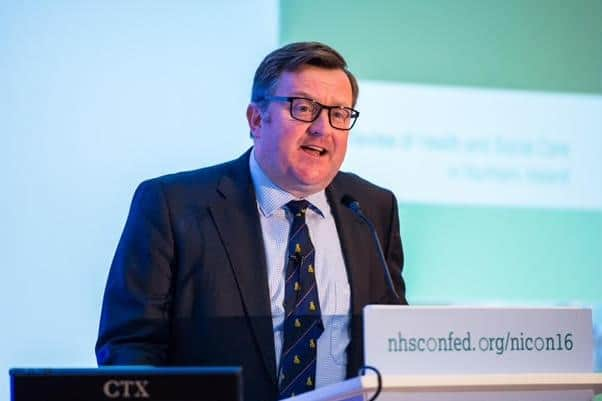Northern Ireland NHS hospital crisis: NI Director of the Royal College of Surgeons, Mark Taylor, says rural hospitals will not retain specialised surgeons in future – and patient survival rates are improving as a result
and live on Freeview channel 276
Mark Taylor, the NI Director of the Royal College of Surgeons, was speaking in the wake of the latest disruption to services in NI hospitals.
This week it was also announced that births would be moved from the Causeway Coast Hospital to Antrim Area Hospital. There are also plans to move Emergency General Surgery away from Daisy Hill and the South West Acute Hospital in Enniskillen. The problems are being linked to difficulties in retaining doctors in rural hospitals.
Advertisement
Hide AdAdvertisement
Hide AdMr Taylor told the News Letter that advances in scientific knowledge, medical technology and surgeons’ skills over past decades has led to exceptional levels of specialisation by doctors.


This has led to massively improved survival rates for patients who can now survive conditions – such as advanced cancer - which would previously have killed them.
And this makes it more than worthwhile to travel longer distances to see specialists in major population centres, he says.
"That extra period of travel is definitely worth taking to get the best outcome for the patient," he said. "The real worry for me is that emergency general surgical service can go back into all of these [rural] places - but without the full backup and support, without the latest standards being applied. But then you've got rural parts of Northern Ireland getting a second rate service."
Advertisement
Hide AdAdvertisement
Hide AdThe downside is that surgeons no longer want to be generalists. And in order to have the full range of 24/7 specialist support services to keep their theatres safe - and to achieve the necessary volume of patients to maintain and improve their skills - such surgeons are moving to major urban hospital centres.
Mark endorses NHS plans to increasingly use rural hospitals in NI for elective non-emergency surgery while maintaining all their medical (non-surgery related) wards, for example for conditions such as asthma, strokes and heart attacks. He insists there is no "machiavellian plan" - but that surgeons are simply "voting with their feet".
And he insists that this has no impact on keeping rural Emergency Departments open, which are capable of dealing with emergency trauma, such as car crashes.
If necessary they can then send such patients to specialist hospitals - increasingly by helicopter.
Advertisement
Hide AdAdvertisement
Hide AdIn rural hospitals in future, if elective surgery is happening daily, visiting surgeons can easily do the job of a general surgeon, if needed.
The entire Scottish NHS system has now been reconfigured with this approach, he said.
There is a "fundamental misunderstanding" about Emergency Medical Surgery, he says, which might be better labelled, unplanned.
"I can count on one hand the number of times where I needed to speed up the motorway to get into the hospital for a perforated bowel, appendicitis or a perforated ulcer”.
Advertisement
Hide AdAdvertisement
Hide AdAsked if there are any other regions in the west that are evolving different models, he says there are not.
"If anything they are even more advanced in their sub-specialisation than we are," he added.
However he says those speculating about the possible “collapse” of Daisy Hill may do more harm than good – by causing staff across the board to think about leaving.